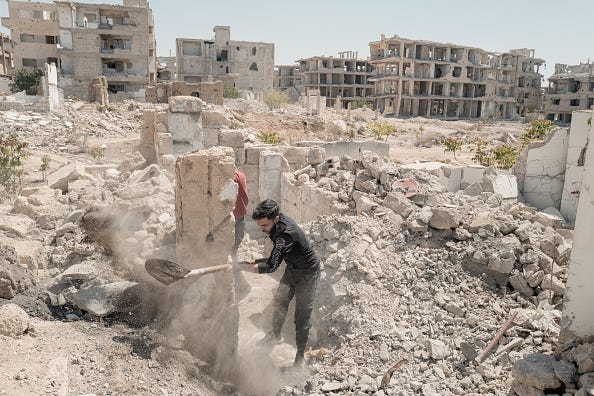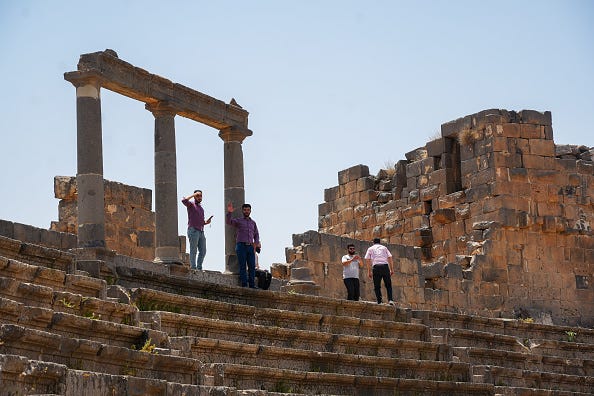Assad's Syria Plagued by Internal Decay, Spyware, & Ally Withdrawals Before Spectacular Collapse
It didn't happen overnight...
TLDR: December 2024 marked the end of Assad-led and controlled Syria. While onlookers who hadn’t been following developments on the ground saw this as a quick, spectacular, and seemingly miraculous change of events, it was anything but: Assad’s Syria collapsed for many reasons, often years in the making, including internal decay (poor troop morale, a worthless Syrian pound), sophisticated cyberwarfare attacks, and the loss and even withdrawal of foreign support from Russia and Iran.
In an article published 26 May 2025 in New Lines Magazine, Kamal Shahin, like many others, was baffled by the sudden and spectacular collapse of Assad’s regime in Syria.
For those who’ve been living under a rock, here is what you’ve missed: the rebels have taken over Syria, Syria’s Assad family has since fled to Russia, and Syria’s future, as murky as ever, now hangs in the balance.
The Syrian Civil War (c. 2011–2024?) has been one for the books: It’s an event that will be studied by historians and political scientists for decades. The war itself has been characterized by lulls and high intensity fighting, faction complexity, and depravity on all sides.
However, the spectacular collapse of Assad’s regime in 2024—and spectacular it was—didn’t happen overnight. It resulted from a decade and change of internal decay, recent spyware infections, and the weakening (and even withdrawal) of Assad’s closest allies.
A Very (Very) Brief Intro to the Syrian Civil War
Syria is a country with a deep and rich history. Although a majority Sunni Muslim country today, Syria served as an important province of the eastern half of the Roman Empire. It also served as a sort of incubator for Christian theology. Syria played a fundamental role in Western Christianity’s theological foundations and early histories. For Muslim faiths, Syria has played a pivotal role in different Islamic theologies and histories. Unfortunately, the Syrian Civil War has destroyed a number of deeply important religious and archeological sites.







